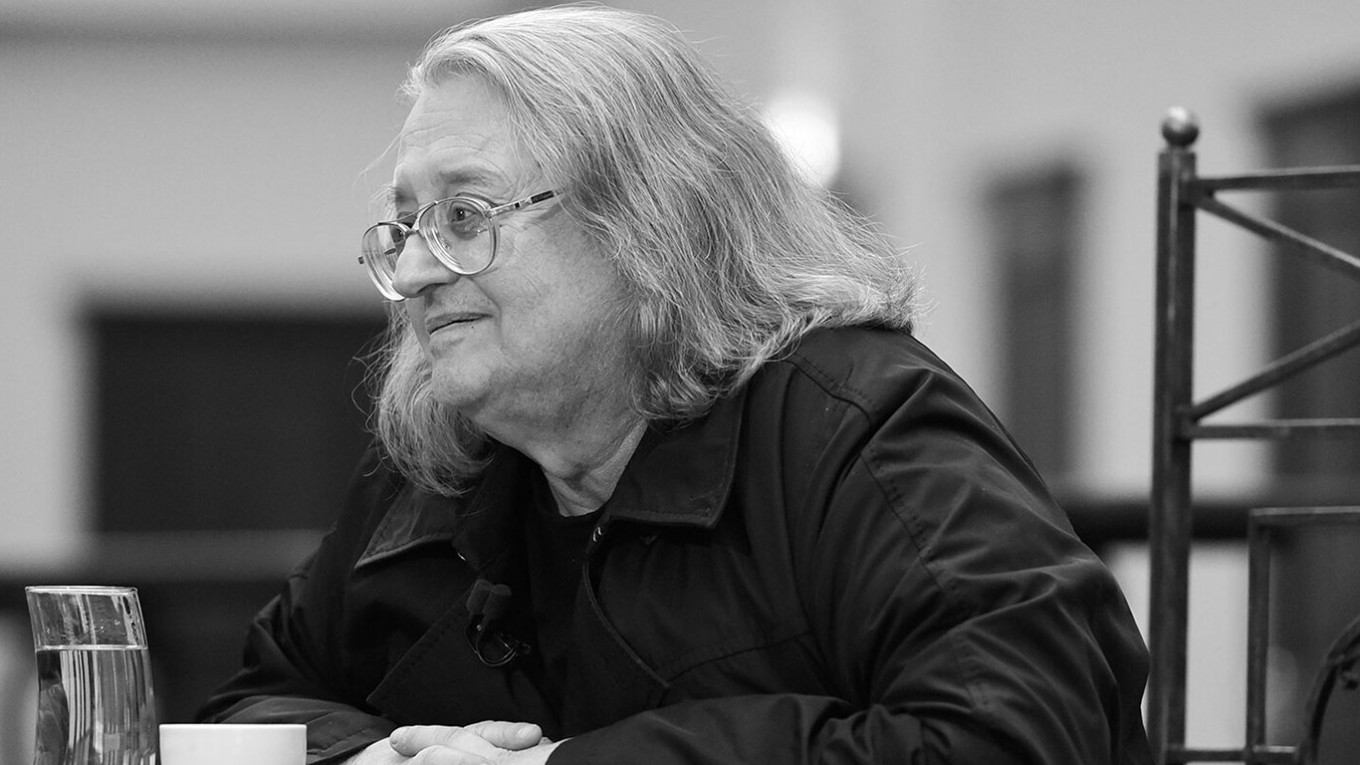Alexander Gradsky, one of Russia's most famous singers, musicians, composers, and teachers died early Sunday morning in Moscow at the age of 72.
Gradsky’s career spanned more than half a century and ranged from composing for and performing in the very first rock ‘n roll bands in the Soviet Union, performing in “The Golden Cockerel” opera in the Bolshoi Theater, scoring dozens of films, composing operas and ballets, hosting television and radio programs, teaching at the Gnessin Music Academy and serving as one of the most beloved coaches on the popular Russian television competition “The Voice.”
Gradsky grew up in the city of Kopeysk (Chelyabinsk oblast). His father was an engineer and mother was an actress, whose brother performed in the Moiseyev dance troupe and brought albums of jazz and rock ‘n roll home from his tours abroad. By his early teens Gradsky was playing the guitar and singing Western rock ‘n roll. He performed in three informal rock bands before forming his own, the Jesters (Скоморохи) in 1967 at the age of 18. After enrolling in the Gnessin Music Academy two years later, he continued to perform with the Jesters, now with new musicians, which became one of the first Russian rock groups permitted to perform live, record albums, and be broadcast on radio and later television.
While Gradsky was still studying at the Academy, film director Andrei Konchalovsky asked him to write music for the movie “A Lovers’ Romance.” Gradsky, a tenor with a range of more than three octaves, sang all the male parts in the movie. Two years later he performed a composition called “How Young We Were” by Alexandra Pakhmutova and Nikolai Dobronravov for the film “My Love in Junior Year.” The song won the “Song-77” festival and remains one of Gradsky’s best-known and most popular songs.
Over his career, Gradsky would score more than 40 movies and release dozens of albums. He also composed several operas, including the rock opera “Stadium” in 1985 and an opera of Mikhail Bulgakov’s “Master and Margarita.” The opera, written in 2009, has not been performed on stage but exists as a recording with a cast of some of Russia’s best singers and musicians. He also composed a rock ballet called “The Man” in 1988.
Gradsky performed hundreds of times on stage, alone or with the Jesters and other musicians, singing rock ‘n roll or classical music, in the Soviet Union, Russia and former republics, Europe, Asia and the U.S. In New York he performed in Carnegie Hall; in San Francisco and Berkely at a Grateful Dead concert; and in other venues with a range of performers, from Liza Minelli, John Denver, and Dianne Warwick to Sammy Davis, Jr.
In 2012 Gradsky first served as a coach on the popular television singing competition “The Voice.” Two years later he founded his own musical theater in Moscow, “Gradsky Hall,” which headlines “The Voice” performers and other groups, musicals and performers.
In addition to many honors and awards for his work, in 1997 Gradsky was given the title “Merited Artist of the Russian Federation and in 1999, he was made “People’s Artist of the Russian Federation.”
Alexander Gradsky was married three times and has two grown children from his marriage with Olga Fartysheva and two young sons from a long-term relationship with Marina Kotashenko. Gradsky’s health deteriorated after being ill with coronavirus in September. On Saturday he was rushed to the hospital with a suspected stroke and died a few hours later.
Since his death, tributes have been running almost non-stop on radio and television, and President Putin sent a telegram of condolence to the singer’s family and friends.
On Dec. 1 a memorial service will be held at Gradsky Hall from 10 a.m. to noon. Alexander Gradsky will be buried in the Vakhtangov Cemetery where his parents are interred at 1:30 p.m.
Updated Nov. 30 to reflect finalized funeral arrangements.
A Message from The Moscow Times:
Dear readers,
We are facing unprecedented challenges. Russia's Prosecutor General's Office has designated The Moscow Times as an "undesirable" organization, criminalizing our work and putting our staff at risk of prosecution. This follows our earlier unjust labeling as a "foreign agent."
These actions are direct attempts to silence independent journalism in Russia. The authorities claim our work "discredits the decisions of the Russian leadership." We see things differently: we strive to provide accurate, unbiased reporting on Russia.
We, the journalists of The Moscow Times, refuse to be silenced. But to continue our work, we need your help.
Your support, no matter how small, makes a world of difference. If you can, please support us monthly starting from just $2. It's quick to set up, and every contribution makes a significant impact.
By supporting The Moscow Times, you're defending open, independent journalism in the face of repression. Thank you for standing with us.
Remind me later.






